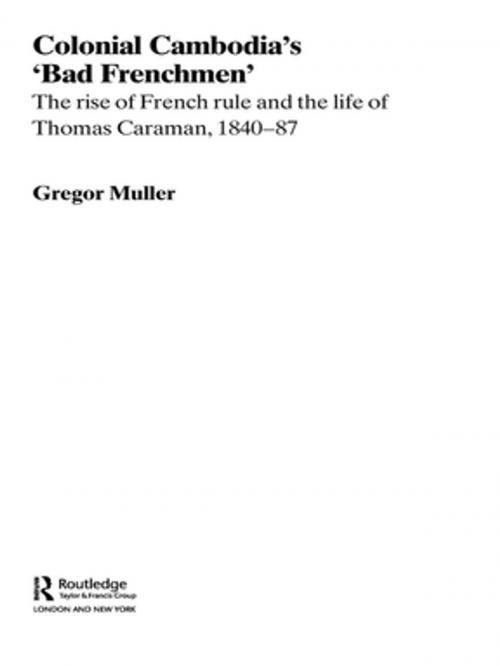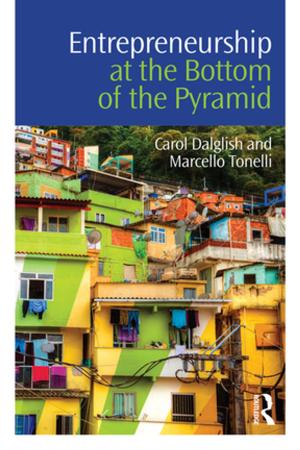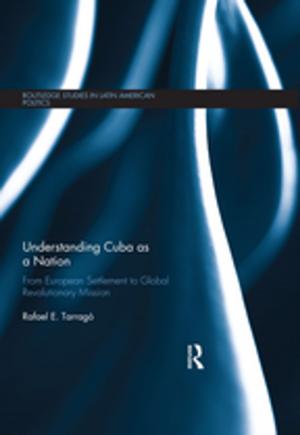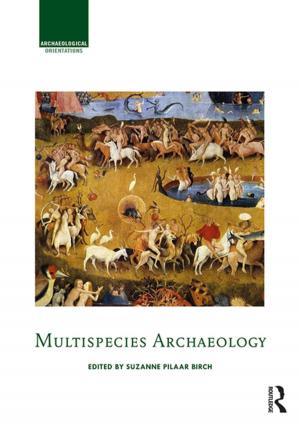Colonial Cambodia's 'Bad Frenchmen'
The rise of French rule and the life of Thomas Caraman, 1840-87
Nonfiction, History, Asian, Southeast Asia, Asia, Social & Cultural Studies, Social Science, Cultural Studies, Ethnic Studies| Author: | Gregor Muller | ISBN: | 9781134253715 |
| Publisher: | Taylor and Francis | Publication: | April 7, 2006 |
| Imprint: | Routledge | Language: | English |
| Author: | Gregor Muller |
| ISBN: | 9781134253715 |
| Publisher: | Taylor and Francis |
| Publication: | April 7, 2006 |
| Imprint: | Routledge |
| Language: | English |
Colonial Cambodia's "Bad Frenchmen" provides a captivating analysis of the gradual establishment of French colonialism in the late nineteenth century. Drawing on new materials from French, Vietnamese and Cambodian archives, it reconstructs a time during which France struggled to give meaning and substance to its Protectorate over Cambodia.
It traces the lives of failed colonists – most notably Thomas Caramen, who all constituted a challenge to the colonial enterprise by muddling its social, cultural and racial boundaries. In its consideration of the critical role played by these colonists, this compelling book shifts away from governor-generals, grand discourses and the simple view of colonialism as ‘colonizers’ versus ‘colonized’, to explore how things actually worked themselves out on the ground. It examines in particular the 'civilizing mission' and educational initiatives; the slow destruction of the indigenous justice system; the policing of sexual relations between colonisers and colonized; the theft of Cambodian land and taxes by the colonizing power; and the brutal repression of resistance wherever and whenever it appeared.
Overall, Muller reveals the crucial role played by indigenous middlemen and marginal Europeans in the rise of the colonial state, and tells the fascinating tale of a Frenchman who came to represent everything that the colonial state dreaded.
Colonial Cambodia's "Bad Frenchmen" provides a captivating analysis of the gradual establishment of French colonialism in the late nineteenth century. Drawing on new materials from French, Vietnamese and Cambodian archives, it reconstructs a time during which France struggled to give meaning and substance to its Protectorate over Cambodia.
It traces the lives of failed colonists – most notably Thomas Caramen, who all constituted a challenge to the colonial enterprise by muddling its social, cultural and racial boundaries. In its consideration of the critical role played by these colonists, this compelling book shifts away from governor-generals, grand discourses and the simple view of colonialism as ‘colonizers’ versus ‘colonized’, to explore how things actually worked themselves out on the ground. It examines in particular the 'civilizing mission' and educational initiatives; the slow destruction of the indigenous justice system; the policing of sexual relations between colonisers and colonized; the theft of Cambodian land and taxes by the colonizing power; and the brutal repression of resistance wherever and whenever it appeared.
Overall, Muller reveals the crucial role played by indigenous middlemen and marginal Europeans in the rise of the colonial state, and tells the fascinating tale of a Frenchman who came to represent everything that the colonial state dreaded.















